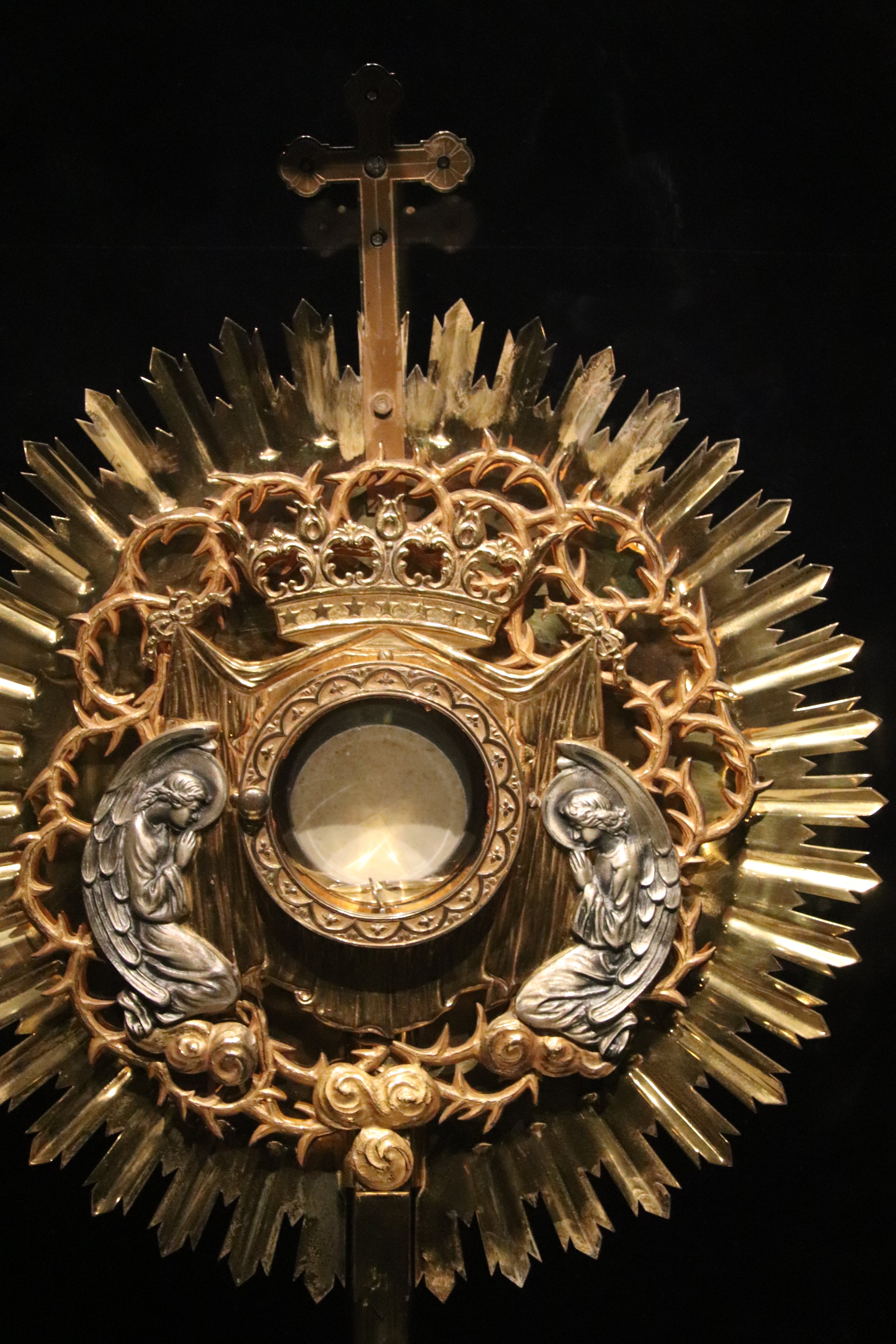Spoiled by the Eucharist
The sisters are spoiled, but not spoiled rotten. How?
Normally when we think about being spoiled, we think about a selfish or sinful adult or child: a person who is pampered, lavished with attention or material goods in a way that makes the person turn inward and become self-centered and greedy.
Father Dominic Langevin, O.P.
“The Dominican sisters in North Guilford are spoiled….”
In a broader fashion, the history of human sinfulness can be described by self-centeredness and greed. God gave to Adam and Eve gifts in the garden of Eden. But, becoming clingy, grasping for the forbidden fruit, Adam and Eve acted like spoiled children who think and say, “Me, Me, Me.” The problem was not God’s generosity. The problem was Adam and Eve’s selfish pride. Ours too. The fruit of that pride was rotten. We human beings became rotten. We lost sight of God and instead fell for a created figment.
To call us out of our darkened vision, God had to reveal His greater light and to shine that light into our darkness (see the Prologue of St. John’s Gospel). In describing the process of human justification from a state of sin to the state of friendship with God, the Dominican Saint Thomas Aquinas explained that the first aspect is God’s initiative in His gift of grace (Summa theologiae, I-II, q. 113, especially a. 8). The attractiveness of God leads us to turn away from the false friend of sin. Anything less than the possession of God’s goodness is a cheapening of our human potential and happiness. Possessing such goodness, the saints hate sin.
God’s self-revelation is key not just for our justification from mortal sin but also for our further growth in His love, for our elimination of venial sins and imperfections. God has to attract us, and we thereby have to love Him more and more, avoiding the small distractions that are venial sins.
The Dominican sisters in North Guilford are spoiled because they have God Incarnate physically present more than most of us do. At the physical heart of the monastery, in the middle of the chapel around which the nuns’ life revolves, there is the monstrance containing the Eucharist, the sacramental Real Presence of Jesus Christ in His Body and Blood, Soul and Divinity. God is there, 24/7, 365 days a year, to attract them to Himself, to perfect them in His goodness. Christ’s presence in the nuns’ physical space leads to His presence in their spiritual space, their souls.
The sisters are spoiled but not spoiled rotten. They are spoiled repentant. We Dominicans are repentant sinners. In our first words to enter Dominican life, in response to the superior’s question, “What do you seek?”, we respond, “God’s mercy and yours.” To have the Eucharist at the center of the monastery is such a wonderful way to live that divine mercy.
The Eucharist gets us out of ourselves and focuses us outward: primarily toward Christ, who is God and man, but also—secondarily, through Christ—toward our fellow men and women. In the Eucharistic Presence of our Lord, we are moved to love those whom Christ loves, our neighbors: to pray for them and, beyond our time in front of the Blessed Sacrament, to serve them physically. To have the Eucharist at the center of the monastery is such a wonderful way for the nuns to live their mission of praying and doing penance for the salvation of souls.
We have recently celebrated Holy Week and Easter. At the Last Supper, on Holy Thursday, Christ gave the Church His Eucharistic Presence. And at Easter, Christ, rising from the dead, ensured that that Eucharistic Presence is His living presence, and made Himself known “in the breaking of the bread” (Emmaus, Lk 24:35).
The sisters are spoiled by the Eucharist. And no one will begrudge them for it.
Father Dominic Langevin, O.P. is Dean of the Pontifical Faculty of the Immaculate Conception at the Dominican House of Studies, Washington, DC.


